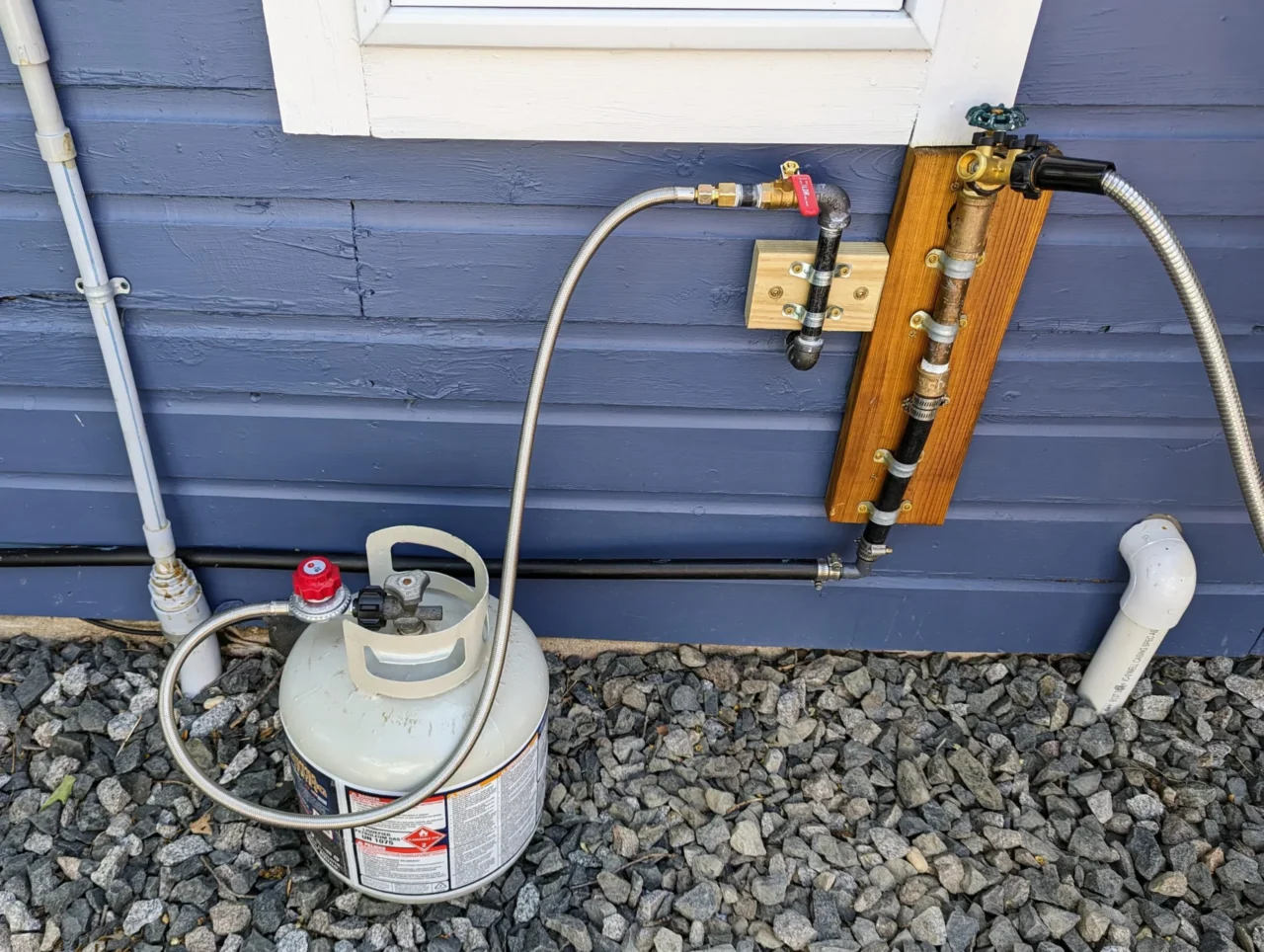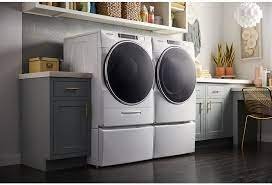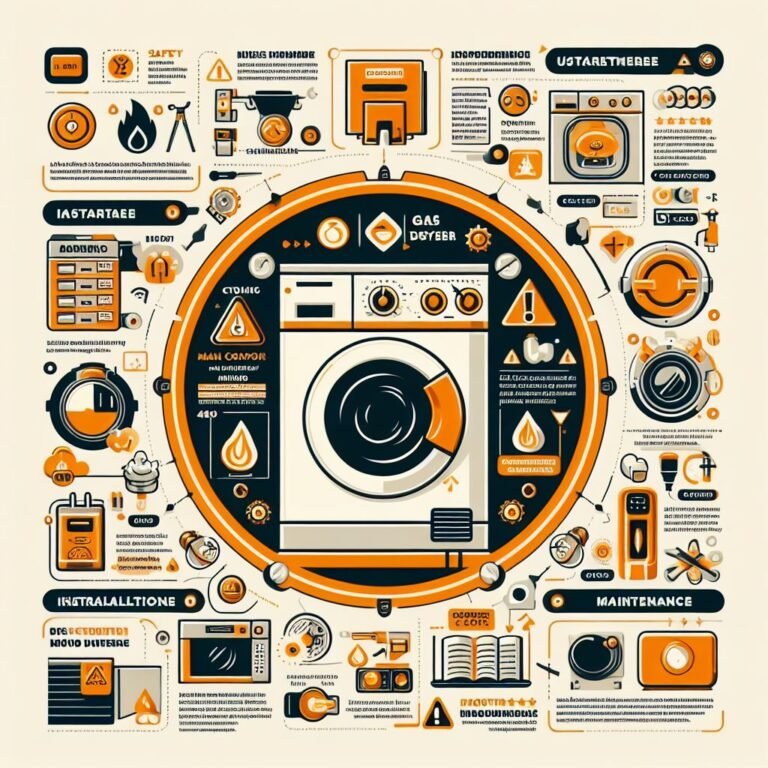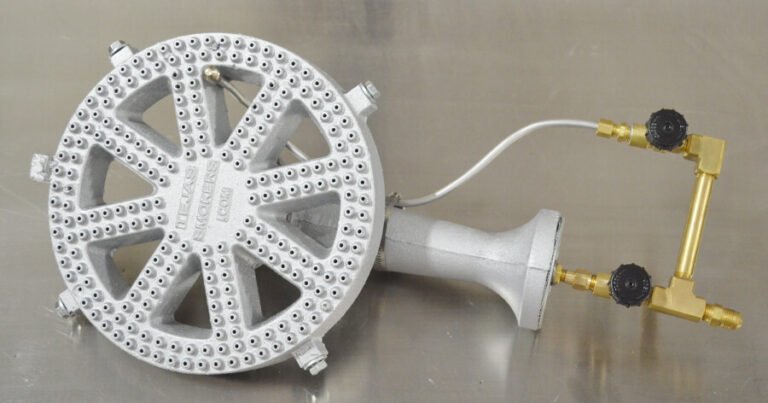Can Gas Dryer Run on Propane? A Comprehensive Guide
Key Takeaway
| Key Points |
|---|
| – Understanding the fuel conversion process. |
| – Necessary parts and conversion kits. |
| – Safety considerations for the conversion. |
| – Comparison of BTU and pressure between gas and propane. |
When it comes to home appliances, one question that often arises is, “Can gas dryer run on propane?” In this comprehensive guide, we’ll explore the possibility of converting your gas dryer to operate on propane. We’ll delve into the potential benefits and drawbacks, providing you with all the information you need to make an informed decision.
what is propane?
Propane is a hydrocarbon gas that is commonly used as a fuel source for various applications. It is a byproduct of natural gas processing and petroleum refining. Propane is also known as liquefied petroleum gas (LPG) because it is stored and transported in a liquefied state under pressure.
Can you run a gas dryer on propane?
Yes, a gas dryer can be converted to run on propane. This conversion process necessitates adjustments to specific components and the utilization of dedicated conversion kits to ensure safe and efficient operation with propane as the fuel source.
Can a propane dryer run on natural gas?
Yes, a propane dryer can be converted to run on natural gas with the necessary adjustments and the use of appropriate conversion kits. This conversion process allows the dryer to switch from propane to natural gas as its fuel source, making it versatile and adaptable to different fuel supplies.
Which type of gas do gas dryers use for their operation?
Gas dryers typically run on either natural gas or propane. The specific type of gas a dryer operates on depends on its configuration and the fuel source available in your location.
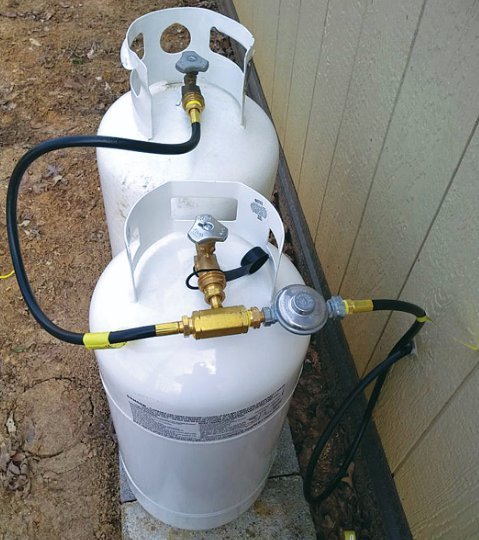
Fuel Conversion Explained
Converting a gas dryer to run on propane is a process that involves more than just swapping out a few parts. It’s essential to understand the intricacies of this conversion.
What happens if you run propane in a natural gas dryer?
Converting a gas dryer to propane means changing the fuel source from natural gas to propane. Natural gas dryers are designed to operate at a lower pressure, and the orifice size for propane is smaller. Attempting to use propane in a natural gas dryer without the necessary adjustments can lead to safety issues and inefficient operation.
To successfully convert your gas dryer to propane, you’ll need to acquire a specialized conversion kit. These kits typically include components such as a burner orifice, a propane gas valve, a gas flex connector, and a conversion label. Each of these components plays a crucial role in ensuring the safe and efficient operation of your propane dryer.
How do I convert my gas dryer to propane?
Converting your gas dryer to propane involves several steps, including replacing the burner orifice and adjusting the gas valve to accommodate the different pressure requirements of propane. It’s important to follow the manufacturer’s guidelines closely to ensure a safe conversion.
Required Conversion Components
| Conversion Components | Description |
|---|---|
| Burner Orifice | Regulates the flow of propane into the dryer. |
| Propane Gas Valve | Controls the propane supply to the appliance. |
| Gas Flex Connector | Connects the dryer to the propane source. |
| Conversion Label | Provides important safety and usage information. |
| Conversion Kit | Includes various parts needed for the conversion. |
Professional vs. DIY Conversion
The choice between hiring a professional technician for the conversion or attempting it as a DIY project is a significant consideration.
What is the difference between a propane dryer and a gas dryer?
Propane dryers, once properly converted, operate on propane, while gas dryers run on natural gas. The key difference is the fuel source, and the conversion process is required to switch between them.
Are all dryers propane?
No, Not all dryers are propane-ready. Most dryers are initially configured for natural gas operation. However, the potential for propane conversion depends on the specific model and manufacturer.
Ensuring Safety and Efficiency
Safety is a paramount concern when it comes to converting a gas dryer to propane. Handling propane and modifying gas appliances require strict adherence to safety measures.
what are the Safety Measures?
Safety measures should never be overlooked during the conversion process. It’s vital to follow the manufacturer’s guidelines for the specific conversion kit you’re using and to be cautious when working with gas appliances. A properly converted dryer ensures the safety of your household.
What is BTU (British Thermal Unit)?
BTU is a measure of energy, specifically heat energy. It’s used to quantify the amount of energy required to raise the temperature of one pound of water by one degree Fahrenheit. In the context of fuel sources, BTU is used to measure the heat content or energy potential of the fuel. The higher the BTU rating, the more heat energy the fuel contains.
Here are some approximate BTU values for common fuel sources:
- Natural Gas: Natural gas typically contains about 1,000 BTUs per cubic foot (BTU/cu. ft.). This means that burning one cubic foot of natural gas releases roughly 1,000 BTUs of heat energy.
- Propane: Propane, on the other hand, contains more energy, with approximately 2,500 to 2,800 BTUs per cubic foot. It’s denser in energy, making it a more efficient fuel source in terms of heating.
- Electricity: Electricity is typically measured in kilowatt-hours (kWh). One kWh is roughly equivalent to 3,412 BTUs. This measurement is used to determine the energy consumption of electric appliances.
what is the Pressure?
Pressure, in the context of gas fuels, refers to the force per unit area within a closed system. When it comes to natural gas and propane, pressure is a crucial factor that affects their use in appliances like dryers.
Here are some typical pressure measurements for natural gas and propane:
- Natural Gas: Natural gas is supplied to households at a relatively low pressure. In the United States, it’s commonly delivered at about 0.25 pounds per square inch (psi) or 7 inches of water column (WC). This lower pressure is suitable for most residential appliances, including dryers.
- Propane: Propane, when stored in a tank, is typically at a higher pressure than natural gas. Propane tanks are designed to withstand pressures of up to 200 psi. However, when propane is supplied to appliances, it is typically reduced to around 11 inches WC or about 0.4 psi, similar to the pressure requirements of natural gas appliances.
what is the Difference between BTU and Pressure?
BTU (British Thermal Unit) measures heat energy, while pressure signifies force per unit area in gas systems. Natural gas has about 1,000 BTU/cu. ft. at 0.25 psi, while propane contains 2,500-2,800 BTU/cu. ft. at similar pressure. Converting appliances between natural gas and propane requires adjustments in orifice size and pressure settings for safe and efficient operation. Understanding BTU and pressure is essential for fuel source conversions.
Comparing Gas and Propane Dryer Benefits
Cost and Convenience
When it comes to choosing between a gas dryer and a propane dryer, cost and convenience are significant factors to consider.
While discussing the cost, you might wonder, “Can a gas dryer run off propane?” Converting a gas dryer to propane can be cost-effective in areas where natural gas supply is limited. Propane is often readily available in various regions, making it a convenient alternative fuel source.
The cost of propane dryers can be slightly higher than that of their natural gas counterparts. However, the overall cost may vary depending on factors like fuel availability and local pricing.
Environmental Impact
The environmental impact of your dryer’s fuel source is an essential consideration. It’s important to assess the emissions associated with both gas and propane dryers and consider their energy efficiency and ecological implications.

Final Thoughts
Can Gas Dryer Run on Propane? converting a gas dryer to run on propane is feasible with the right knowledge and components. This comprehensive guide has provided insights into the conversion process, the components required, safety measures, and a comparison of the benefits of different fuel sources.
It’s crucial to make an informed decision that aligns with your specific needs and circumstances. Whether you choose to go with a gas or propane dryer, safety and efficiency should be your top priorities.Check if can you convert a gas dryer to electric guide post.
fAQ Can Gas Dryer Run on Propane
How do I convert my gas dryer to propane?
Converting your gas dryer to operate on propane is a feasible option, but it requires a precise process. Here’s how you can do it:
- Purchase a Conversion Kit: Start by acquiring a conversion kit designed for your specific dryer model. Most dryer manufacturers offer these kits, ensuring compatibility.
- Safety First: Before starting the conversion, turn off the gas supply to the dryer. This is crucial to avoid any safety hazards during the process.
- Replace the Orifice: The primary component you’ll need to replace is the burner orifice. This small part regulates the flow of propane into the dryer.
- Adjust the Gas Valve: Change the gas valve to accommodate propane. This component controls the propane supply to the appliance.
- Connect to Propane Source: Use a gas flex connector to establish a secure connection between the dryer and the propane source.
- Update with a Conversion Label: To ensure safety and proper usage, attach a conversion label that provides essential information about the conversion.
- Follow Manufacturer Guidelines: Throughout the conversion process, adhere to the guidelines provided by the manufacturer to guarantee safety and efficiency.
While some experienced users may opt for a DIY conversion, it’s crucial to follow the instructions carefully and consider hiring a professional for this technical task if you’re uncertain.
What is the difference between a propane dryer and a gas dryer?
The primary difference between a propane dryer and a gas dryer lies in the type of fuel they use. Propane dryers operate on propane, which is a liquefied petroleum gas, while gas dryers use natural gas. Here are key distinctions:
- Fuel Source: Gas dryers are designed to run on natural gas, which is delivered via pipelines. Propane dryers, on the other hand, use propane tanks as their fuel source.
- Conversion: Gas dryers can’t directly run on propane, but they can be converted with the right kit and adjustments. Propane dryers are specifically designed to run on propane and don’t require conversion.
- BTU and Pressure: Propane has different BTU (British Thermal Unit) values and pressure compared to natural gas. Propane dryers are engineered to handle these differences.
- Availability: The availability of natural gas or propane in your area may influence your choice, as it can impact cost and convenience.
Ultimately, the choice between a propane and gas dryer depends on your specific needs and circumstances.

